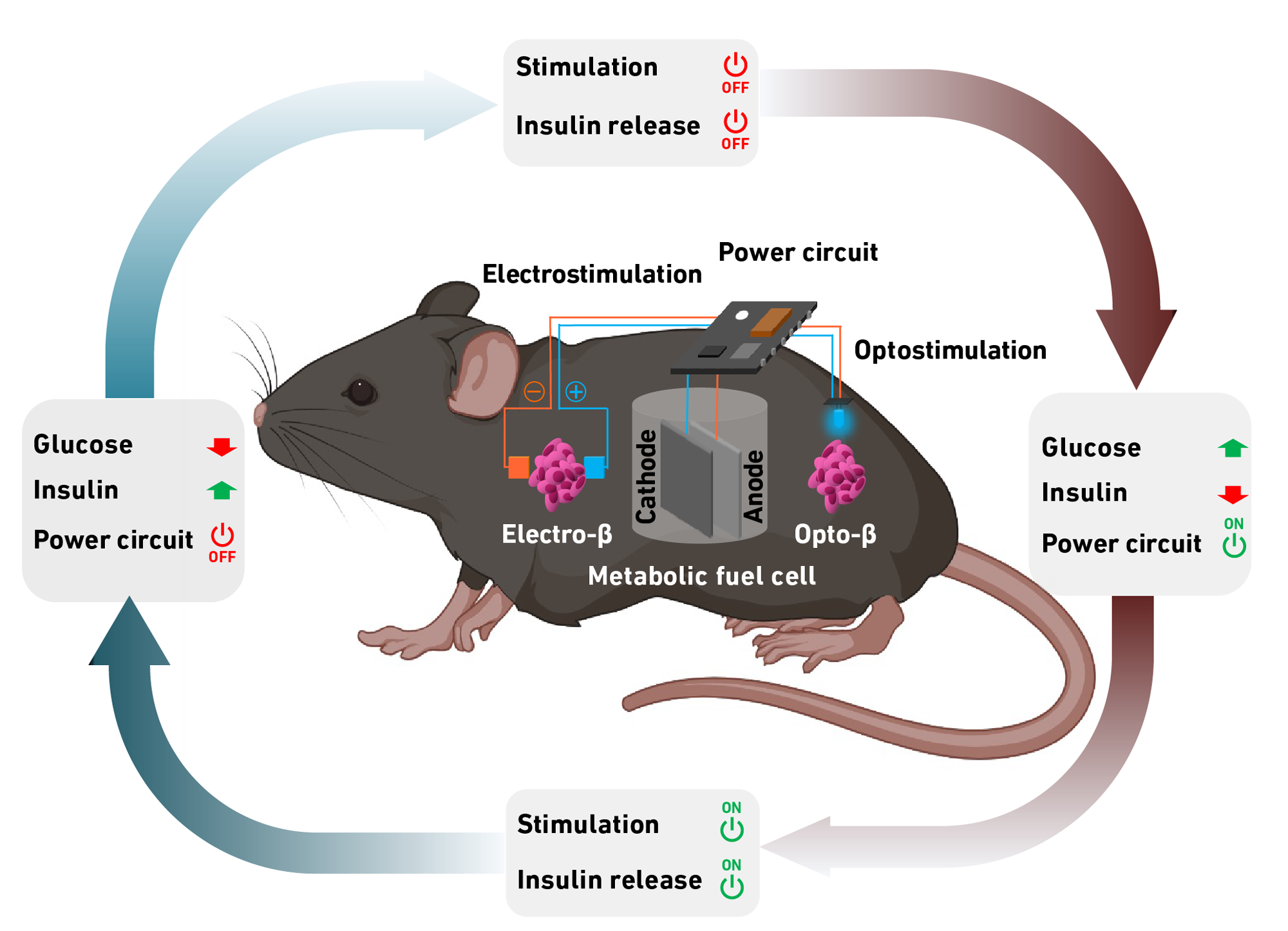Generating power with blood sugar

A fuel cell under the skin that converts blood sugar from the body into electrical energy sounds like science fiction. Yet it works perfectly, as an ETH Zurich research team led by Martin Fussenegger, Professor of Biotechnology and Bioengineering, has shown.
Abstract
- ETH researchers have developed an implantable fuel cell that generates electricity from excess glucose in the blood.
- This could be used to operate medical devices in the future.
- When combined with artificial, insulin-releasing beta cells, this gives rise to a system that can autonomously regulate blood sugar levels.
- This is a prototype, and it is unclear whether it will be brought to market.
In type 1 diabetes, the body does not produce insulin. This means that patients have to obtain the hormone externally to regulate their blood sugar levels. Nowadays, this is mostly done via insulin pumps that are attached directly to the body. These devices, as well as other medical applications such as pacemakers, require a reliable energy supply, which at present is met primarily by power from either single-use or rechargeable batteries.
Now, a team of researchers led by Martin Fussenegger from the Department of Biosystems Science and Engineering at ETH Zurich in Basel have put a seemingly futuristic idea into practice. They have developed an implantable fuel cell that uses excess blood sugar (glucose) from tissue to generate electrical energy. The researchers have combined the fuel cell with artificial beta cells developed by their group several years ago. These produce insulin at the touch of a button and effectively lower blood glucose levels much like their natural role models in the pancreas.
“Many people, especially in the Western industrialised nations, consume more carbohydrates than they need in everyday life,” Fussenegger explains. This, he adds, leads to obesity, diabetes and cardiovascular disease. “This gave us the idea of using this excess metabolic energy to produce electricity to power biomedical devices,” he says.
Peter Rüegg